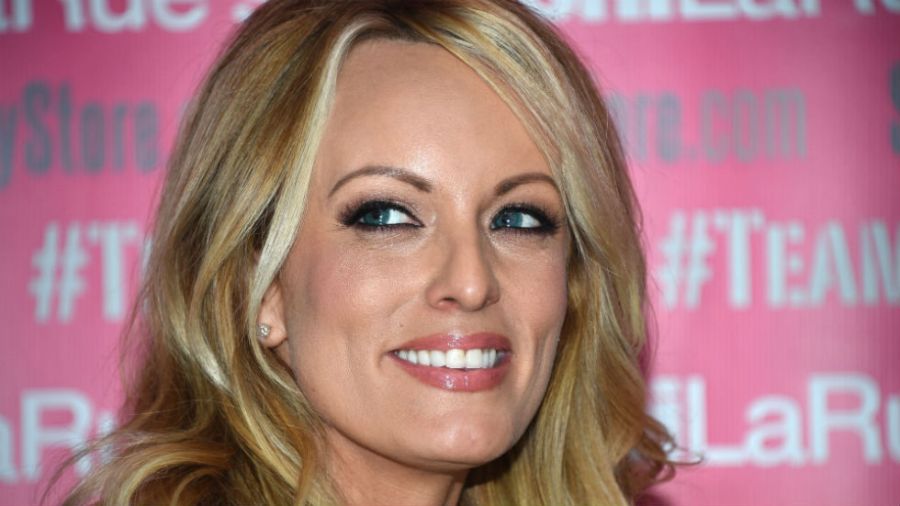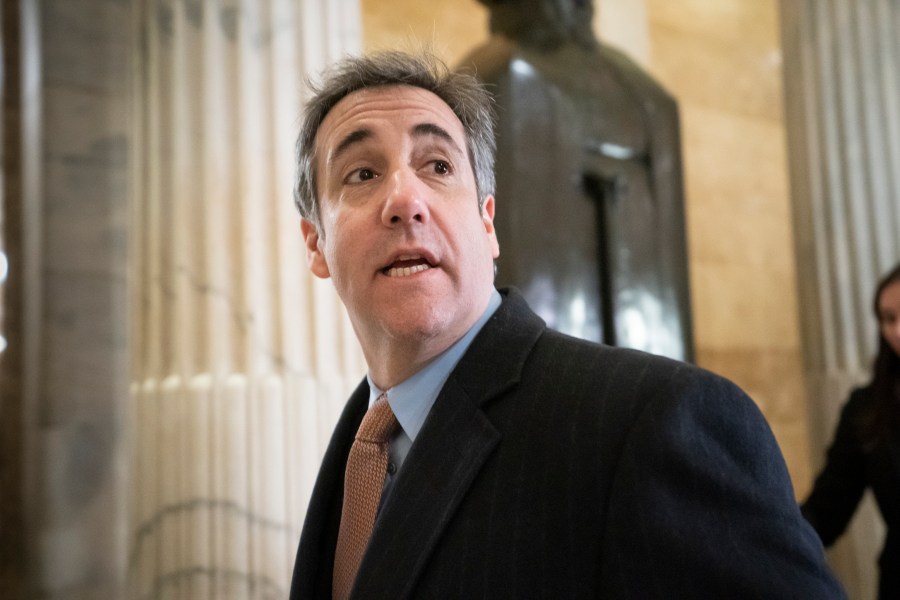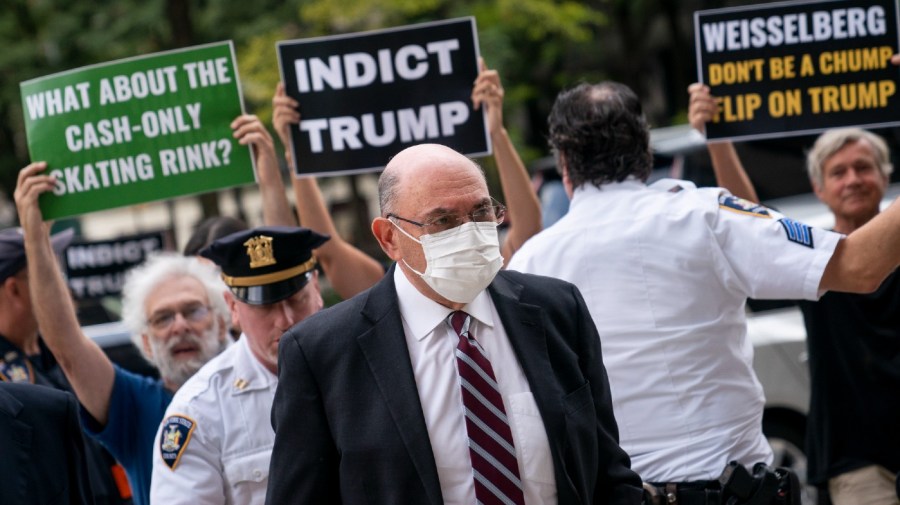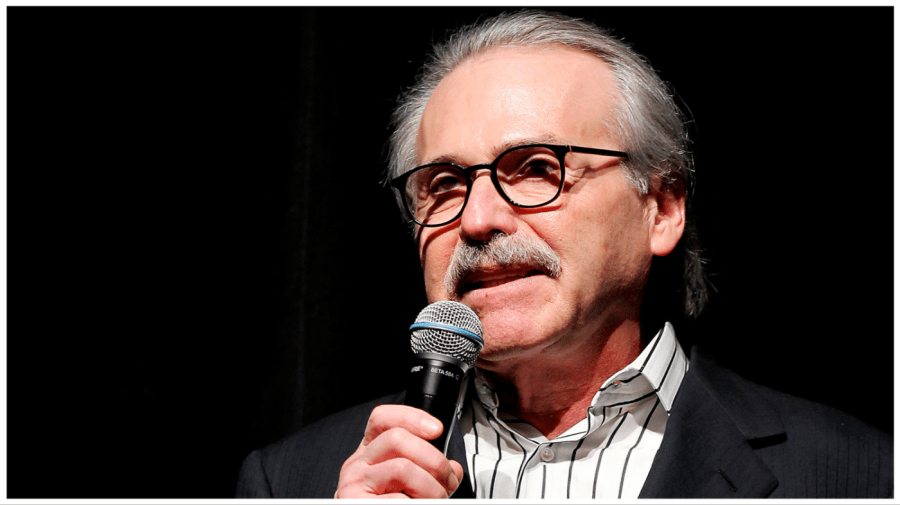5 key figures in the Manhattan DA’s Trump probe

Former President Trump is engulfed in a number of legal battles, but signs are growing that Manhattan prosecutors’ Stormy Daniels investigation could soon produce criminal charges, which would be a first for a former U.S. president.
The New York Times reported on Thursday that the Manhattan district attorney’s office offered Trump a chance to testify next week before a grand jury hears evidence in the probe, which revolves around a 2016 hush-money payment, a signal that charges are likely.
Charges would be a history-making end to an investigation that has shifted between multiple areas of inquiry and two district attorneys.
As the grand jury proceedings move ahead, here are five key figures to know:
Stormy Daniels

(Getty Images)
Daniels, an adult-film star whose real name is Stephanie Clifford, received a $130,000 hush money payment from a Trump aide weeks before the 2016 presidential election, part of a nondisclosure agreement over an affair she says she had with the New York real estate mogul in 2006.
Trump denies the affair with Daniels, whom he publicly refers to as “horseface,” and has rejected multiple allegations related to the scheme, which legal experts suggest could lead to charges of falsifying business records against the former president.
“I did absolutely nothing wrong, I never had an affair with Stormy Daniels, nor would I have wanted to have an affair with Stormy Daniels,” he said in a statement on Thursday.
Reports surfaced in January that prosecutors were probing the payment as they empaneled a grand jury, which examines evidence to determine whether someone should be formally charged with a crime.
The Times reported Thursday that prosecutors offered Trump the chance to testify before the grand jury, a step that often comes shortly before charging decisions are made due to local laws in New York state.
Alvin Bragg

(AP Photo/Julia Nikhinson, File)
Democrat Alvin Bragg has overseen the prosecution since taking over as Manhattan district attorney last year.
He replaced Cy Vance Jr. (D), who began the probe by investigating the hush payment. By the time Vance left, however, he had empaneled a grand jury about a different matter: whether Trump’s businesses’ financial statements were manipulated unlawfully for tax and loan benefits.
After taking over, Bragg opted against seeking an indictment on that prong, leading two top prosecutors who believed charges should be brought — Mark Pomerantz and Carey Dunne — to resign.
“We developed evidence convincing us that Donald Trump had committed serious crimes. As we put the facts together, many of us came to believe that we had enough evidence to convict him, and we could present a solid case in court that would lead to a guilty verdict,” Pomerantz wrote in his memoir.
At the time, the probe appeared to somewhat fizzle.
But recent developments have indicated the opposite as Bragg returns to the hush money. Pomerantz said the matter became known as the “zombie theory” within the office, because the original prong had faded but never died.
Michael Cohen

(AP Photo/J. Scott Applewhite, File)
Michael Cohen, Trump’s former personal attorney who made the payment to Daniels, is expected to be a key witness if prosecutors seek an indictment.
Through frequent media appearances, Cohen, who pleaded guilty to federal campaign finance violations in connection with the payment, has indicated he is eager to testify against Trump and believes he should be charged.
The hush payment on its own is not illegal, but Cohen claims Trump directed him to make it as the election loomed and reimbursed him in monthly installments while erroneously recording them as a legal retainer fee.
Legal experts have suggested prosecutors could attempt to bring state charges of falsifying business records. They would need to show that Trump, with an intent to defraud, was personally involved in unlawfully designating Cohen’s reimbursements a legal expense.
But to secure the felony version of the charge, they would additionally need to show the fraud included an intent to commit another crime, likely a campaign finance violation.
Cohen was disbarred and served more than a year in prison over the scandal, but using the federal charge as the additional crime against Trump would leverage an untested legal theory.
Trump’s attorneys are also likely to attack the credibility of Cohen, a convicted felon who also pleaded guilty to lying to Congress.
Allen Weisselberg

(AP Photo/John Minchillo, File)
Former Trump Organization chief financial officer Allen Weisselberg is currently serving a five-month jail sentence at Rikers Island in connection with the Manhattan probe’s tax-benefit prong, but he could also play a pivotal role in the hush-money investigation.
Weisselberg pleaded guilty to 15 counts of tax evasion last year in a deal with Manhattan prosecutors, agreeing to testify against the Trump Organization in exchange for the far shorter sentence.
He was personally involved in sending the reimbursement payments to Cohen, according to federal court records, and was given immunity during the separate investigation that culminated in Cohen’s campaign finance charges.
But Weisselberg so far has apparently resisted Manhattan prosecutors’ efforts to get him to turn on the former president himself.
Prosecutors have recently stepped up their pressure by threatening Weisselberg with new, serious charges that revolve around insurance fraud if he doesn’t cooperate, the Times reported last month.
David Pecker

(Marion Curtis via AP, File)
David Pecker, the former publisher of the National Enquirer, on multiple occasions purchased the rights to embarrassing stories about Trump without ever planning to publish them, a practice known as “catch and kill.”
In August 2016, Pecker’s company paid Playboy model Karen McDougal $150,000 for the rights to her story about an alleged affair with Trump.
Pecker and the tabloid’s then-editor-in-chief, Dylan Howard, became involved in Daniels’s arrangement two months later.
They reportedly declined to pay Daniels to buy her silence, telling Cohen to arrange the payment directly.
The Times reported that Cohen was slow to pay, so Howard texted him urging to coordinate something “or it could look awfully bad for everyone.”
In January, Pecker was seen walking into the building where the grand jury is sitting, according to The Times.
Copyright 2023 Nexstar Media Inc. All rights reserved. This material may not be published, broadcast, rewritten, or redistributed. Regular the hill posts







